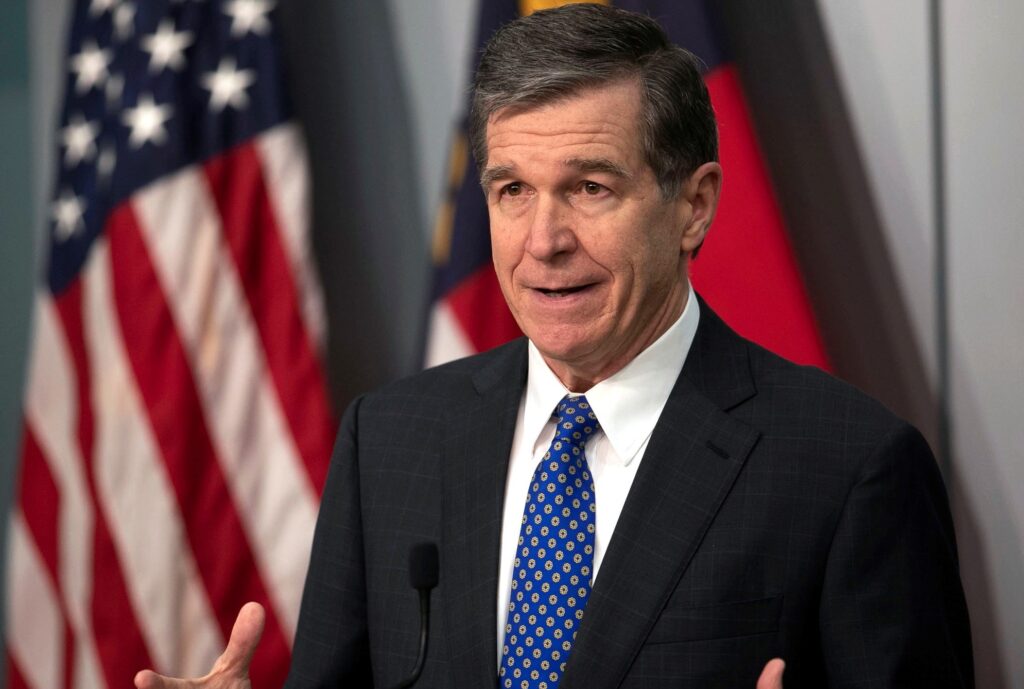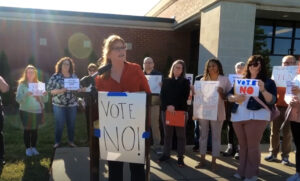Power play: NC Board of Education seizes purse strings from charter school board
(The Center Square) – Gubernatorially appointed members of a North Carolina board led a vote Thursday to institute education policy undermining the will of the 170-member General Assembly.
The…

(The Center Square) – Gubernatorially appointed members of a North Carolina board led a vote Thursday to institute education policy undermining the will of the 170-member General Assembly.
The state Board of Education can withhold funds from schools approved by the newly minted Charter Schools Review Board. The legislators, using veto override votes for House Bill 618, changed an advisory board to the review board Aug. 16, giving authority to grant charters to the review board, but now those schools can’t necessarily get access to taxpayer dollars without the state Board of Education approval.
It wasn’t immediately clear how lawmakers will move next.
Yes votes were from Chairman Eric Davis, Donna Tipton-Rogers, John Blackburn, Alan Duncan, Wendell Hall, Jill Camnitz, Reginald Kenan and James Ford.
Lt. Gov. Mark Robinson and Treasurer Dale Folwell, both Republican candidates for governor, joined fellow Republican Olivia Holmes Oxendine to oppose the change. State Superintendent Chatherine Truitt was also against it.
This board usually unveils policy one month, and votes on it no sooner than the next monthly meeting, which Robinson, Truitt and Oxendine each pointed out.
“I know this is a controversial subject,” Folwell said ahead of Thursday’s vote. “I’m not sure how this is going to end … as far as the legislative intent.”
The initial passage of HB618 was 30-18 in the Senate and 77-42 in the House, with five of 68 Democrats in support: Reps. Cecil Brockman of Guilford County, Shelly Willingham of Edgecombe County, Garland Pierce of Scotland County, James Roberson of Wake County, and Michael Wray of Northampton County.
Brockman and Willingham stayed true on the override votes; Pierce, Roberson and Wray flipped support in line with Gov. Roy Cooper’s veto. None of the 102 Republicans were opposed on any of those four votes.
The new policy will require the Charter School Review Board to present all approved charter school applications to the state Board of Education “for allocation of funding before state or federal funds are disbursed.”
It requires the same for charter school renewals and “all material changes being considered by the Review Board.” The policy contends the motivation is to “ensure accountability from charter schools for school finances and student performance.”
Eric Davis of Charlotte, appointed chairman of the state Board of Education by Cooper in April 2021, on Wednesday cited seven charter school closures in recent years, “at least five of them with questionable financial situations, which are currently being reviewed by federal officials.”
There are 211 charter schools in North Carolina.
“The proposed policy seeks to balance state board’s constitutional statutory duties to supervise and administer charter schools, which are part of the public school system, and to administer or allocate the funds provided to those schools with the new duties legislatively provided to the new review board,” board member John Blackburn said during Wednesday’s discussions.
Truitt noted “the way the policy is written now, because it is so vague, would allow for this board to vote not to open a charter school and not give a reason.”
Lawmakers said the intent behind HB618 is to streamline the charter approval process. Cooper vetoed the bill on July 7, describing it as a “legislative power grab” that would make it “more likely that faulty or failing charter schools will be allowed to operate and shortchange their students.”
On Wednesday, the Board of Education got a standardized test scores report for 2022-23 showing 804 low-performing schools, and 25 of 115 school districts as low-performing. In a January poll of North Carolinians by Civitas, more than 67% supported the state’s Opportunity Scholarship Program, which grants scholarships to low-to-moderate-income students to attend a school of their choice; 68.7% supported charter schools; and 68.8% supported Education Savings Accounts, which provide families with funds to pay for educational expenses, such as tuition, tutoring, and instructional materials.
The new state board policy drew a loud and heated rebuke from Robinson on Wednesday, when he said “it smacks of political pandering and should not be tolerated on an issue this important.”
Proponents of the new policy cited the Charter School Review Board’s upcoming meetings on Friday and next week to put it in place now. HB618 allows the review board to examine cases of recommended approvals from a previous Charter School Advisory Board that were later denied by the state board, dating back to July 2022. The review board is expected to exercise that authority on Monday for two charter schools that received unfavorable rulings from the state board: American Leadership Academy-Monroe and Heritage Collegiate Leadership Academy in Wake County.
The review board consists of 11 voting members, with eight appointed by the General Assembly. The state board is comprised of Robinson, Folwell, and 11 members appointed by the governor and confirmed by the General Assembly.
The North Carolina Charter Schools Coalition contends the new policy violates state law by separating charter school approval from funding approval.
“North Carolina charter schools are enormously popular with families, as evidenced by the 77,000 names on charter school waitlists,” said Lindalyn Kakadelis, the coalition’s executive director. “The Legislature streamlined the approval process for new public charter schools to meet this demand. The state Board of Education is wrong to play these bureaucratic power games when parents just want options in their public schooling.”



